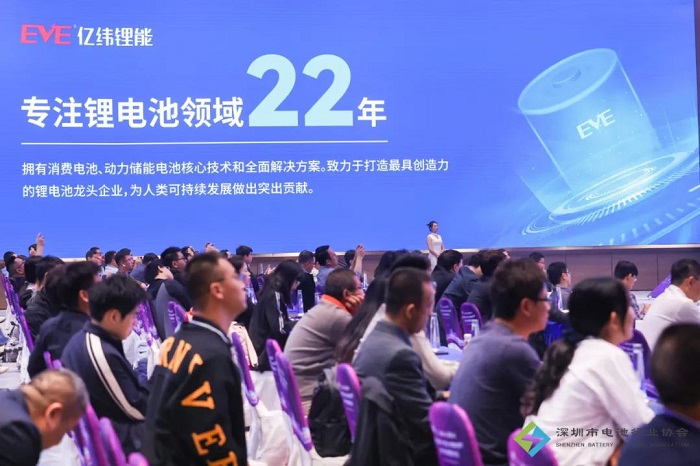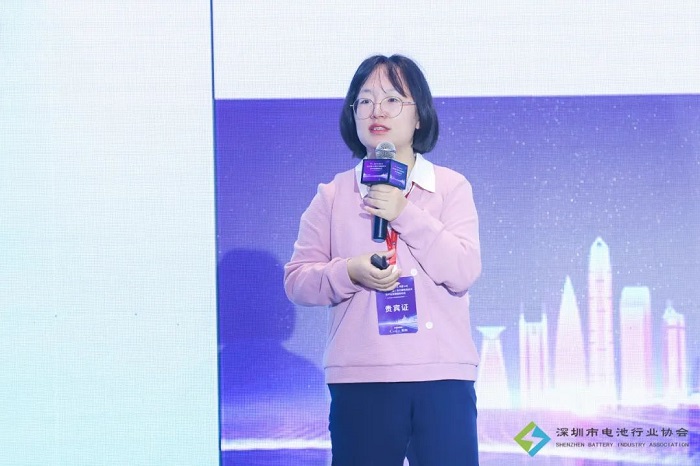 Choose a language
Choose a language
< Back to main menu
EVE attaches great importance to your personal privacy. When you visit our website, please agree to the use of all cookies. More information about the processing of personal data can be found at "Privacy Policy"
 Choose a language
Choose a language

Nov 29,2023
Dr. Ruirui Zhao, Vice President of EVE Energy's Central Research Institute, was invited to attend the 2023 (17th) International Forum on Power Lithium Battery Technology and Industry Development held in Shenzhen on November 24-26, and delivered a keynote speech on "How far is lithium-sulfur battery from industrialization".

Dr. Ruirui Zhao shared that lithium-sulfur batteries have outstanding advantages and high specific energy potential, and are considered to be a new generation of batteries with great prospects for development, but factors such as the insulation of its discharge products, unstable SEI, and safety are still restricting the development of lithium-sulfur batteries on a large scale industrialization.

Dr. Ruirui Zhao introduced the research results of EVE Energy team around lithium-sulfur battery positive materials and processes, lithium metal negative surface stabilization technology and other areas.
At present, EVE Energy after 4 years of research, around the industrialization of lithium-sulfur battery has achieved certain results: breakthrough lithium-sulfur battery high load electrode technology difficulties, to achieve the active substance load>8mg/cm2 electrode pilot line preparation; the development of ultra-thin lithium metal fully automated stacking technology, to achieve the full automated stacking of 30μm lithium metal, stacking superiority is greater than 90%; 14Ah lithium-sulfur pouch battery first ring weight energy density of 432Wh/kg, reversible energy density up to 400Wh/kg.
Due to the failure to solve the problem of dissolution and deactivation of sulfur positive in the middle of the cycling process, the cycling performance is only 101 weeks, so no matter from the point of view of cycling performance and safety, it is difficult to realize the commercialization of the liquid lithium-sulfur battery system in a short period of time, and in the future, we will do the relevant research based on solid-state lithium-sulfur batteries to explore the application scenarios suitable for lithium-sulfur batteries.
Compared with lithium-sulfur batteries, high-nickel NCM lithium metal secondary batteries using the same electrolyte system to achieve 400Wh/kg batteries can be recycled 800 times (80%), which may be more commercially viable, and research has already begun to study the use of this product in the aerospace field.
In the future, EVE Energy will continue to attack the core technology of lithium-sulfur batteries, explore more diversified application scenarios, and contribute to a better life with innovative technology.
